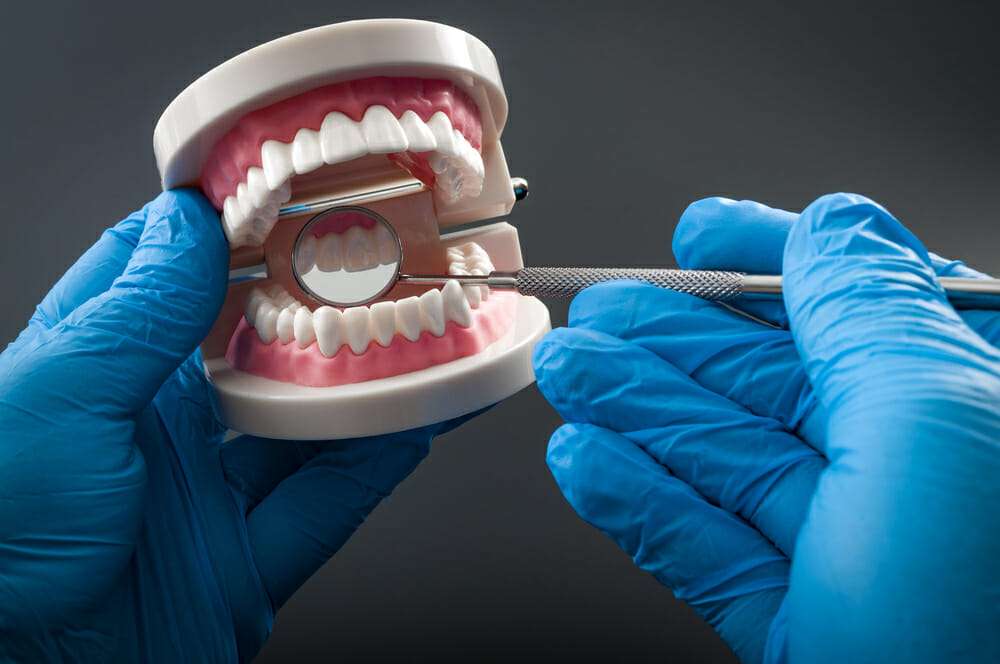Sometimes, it is hard to judge where a problem is coming from in your mouth. Because of this, many people try to ignore oral health warning signs, hoping the symptoms will go away on their own. But persistent pain, especially in the teeth and gums, should never be ignored.
Neglecting an oral health issue can make the situation worse, sometimes requiring the sufferer to get surgery or even a tooth extraction. It’s not just your mouth that suffers when oral health issues arise, though. Poor oral health has been linked to heart issues, diabetes and even certain types of cancer.
To avoid bigger problems down the road, here’s a guide to oral health basics for every age.
WHAT IS PREVENTIVE CARE?
As it turns out, there’s a reason why your dentist tells you to floss! The best way to take care of your teeth every day is to keep them clean and healthy.
There is a whole side of dentistry dedicated to preventing oral health issues. To avoid problems before they arise, we recommend to:
- Brush your teeth every morning and night with fluoride toothpaste
- Floss each night before brushing teeth
- Reduce snacking throughout the day
- Drink lots of water
- Eat a balanced, healthy diet filled with nutritious foods like fruits and vegetables
- Go to the dentist every six months for a checkup and professional cleaning
Following the above steps every day can help to greatly minimize your chance of oral health issues such as gum disease and tooth cavities.
Preventive care is all about taking great care of the teeth and gums to stave off issues in the mouth. Even if you aren’t experiencing any symptoms, it is important to see your dentist at least once every six months (unless instructed to come sooner) for a cleaning and a checkup.
WHAT TO AVOID
Now that we’ve covered a few of the things you should do to keep your oral health in tip-top shape, there are a few things to avoid as well, such as:
- Drinking alcohol
- Consuming sugary foods and beverages
- Using tobacco products (especially cigarettes and chew)
- Waiting to go to the dentist only when there’s a problem
- Eating lots of hard foods
COMMON ORAL HEALTH ISSUES AND THEIR SYMPTOMS
Just a reminder that visiting the dentist before problems arise will help your dentist catch any issues before they become bigger problems. Plus, many of these issues can be prevented just by taking care of your teeth and eating the right foods to support a healthy oral system.
Some common oral health issues include:
- Sensitive teeth and gums
- Cavities
- Gum disease (or the more advanced version known as periodontitis which often results in a need for root canal therapy)
- Tooth injury (fractured enamel, broken teeth)
- Oral cancer
WHAT ARE THE SYMPTOMS I SHOULD LOOK OUT FOR?
Any discomfort in the mouth, whether with a clear cause or not, should not be ignored. For example, if you have a toothache after a sports injury to the mouth, a trip to the dentist is warranted. Even if pain or sensitivity in the mouth pops up on its own, it’s still a good idea to head over to your local dentist for a checkup.
Some of the most common symptoms and complaints we encounter with patients are:
- Tooth sensitivity (on a single tooth or multiple teeth)
- Gum sensitivity
- Gum pain
- Jaw pain
- Halitosis
- Sensitivity to hot or cold while eating and drinking
- Mouth sores or sensitive areas that do not go away on their own
- Painful, bleeding gums after brushing or flossing
- Teeth that feel loose
- Shrinking or receding gums
- Cheek swelling
- Bite pain
- Jaw clicking
- Dry mouth, decreased saliva production
- Rough areas in the mouth, on soft tissue
Although most of these symptoms are not cause for immediate concern, if there is a fever or intense swelling associated with these symptoms, call your doctor right away. It may be the first sign of an infection.
CAUSES OF SYMPTOMS
- Jaw pain is usually caused by a misaligned bite or teeth grinding/clenching (also known as bruxism)
- Tooth pain can be caused either by an injury or tooth decay
- Gum sensitivity is often the first symptom of gum disease, which can later turn into periodontal disease (this form of the disease is very destructive and can harm tissue if not cleared)
- Receding gums can be caused by periodontitis or can be genetic (gum grafts are often recommended for advanced cases, but if caught early, preventive measures can help to preserve gum tissue before surgery is needed)
- Persistent rough patches may be an initial sign of oral cancer — your dentist will be able to biopsy a part of the tissue to check for this at your bi-annual checkup
If you experience any of these warning signs, don’t delay! Give us a call or CONTACT US HERE to schedule an appointment or ask us a question. We’re here to help.


Recent Comments